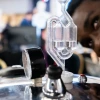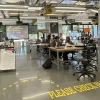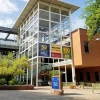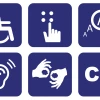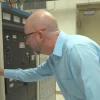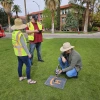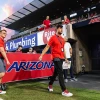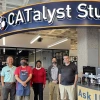Got Tech? The Rhonda G. Tubbs Tech Toolshed Does!
Discovering the University Libraries’ Technology Lending Program
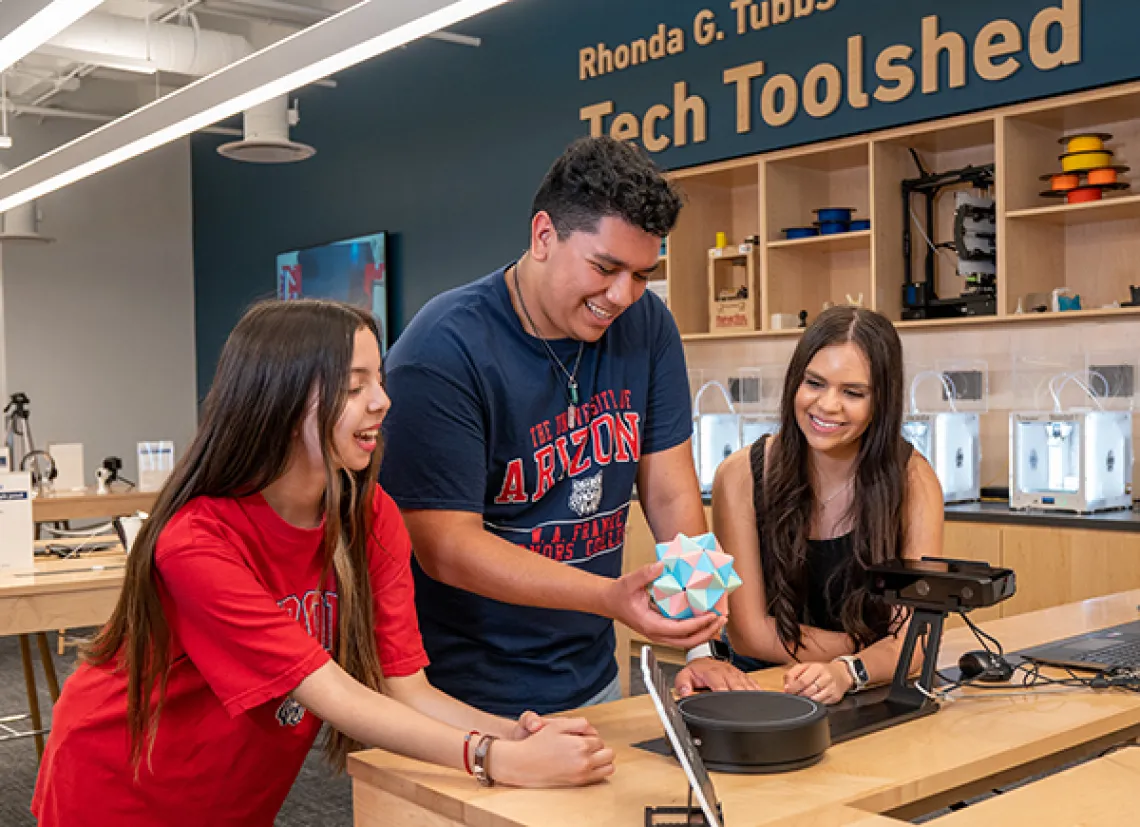
Walk into a University of Arizona Libraries (UAL) building and you’ll see friendly staff or students behind library help desks ready to answer your question or help you find what you are looking for. Gone is the old-style circulation desk, but the day-to-day operations at the Ask Us desks of today’s library include online chat, help with directions inside the buildings, referrals, and answering questions about the study rooms and spaces.
Providing technology as a frontline service
On the first floor of the Main Library is the Rhonda G. Tubbs Tech Toolshed where students can try out or borrow technology, including laptops, cameras, scanners, tablets, and other digital equipment to support their learning and success. Faculty and staff have limited access only to select audiovisual equipment.
Previous stories—Discovering University Library Technologies (March 19) and Discovering The CATalyst Studios Technologies: A Space For Creative Innovation (June 4)—highlight the work contributed by the Libraries’ technology unit, the Technology Strategy & Services (TeSS) department. The staff who support the Tech Toolshed are part of the Libraries’ Access & Information Services (AIS) department, not TeSS.
However, TeSS actively assists the Tech Toolshed AIS staff and students in many ways.
“TeSS staff developed the reimaging system and provides updated OS images with current security patches for the laptops,” says TeSS Department Head Steven Chang. “Problem laptops are also escalated to our staff for technical evaluation.”
The work doesn’t stop there.
TeSS staff provide security consultations and implementations for the non-enterprise 3D printing software applications as well to ensure that they work as needed within the context of campus security.
Travis Teetor, the Manager of Operations and Technology for the Libraries, oversees a lot of the frontline services for the library. “We are traditionally the frontline service that provides access to resources and information on just about everything on campus. But technology has become an increasingly large part of that designation.”
Support in the Tech Toolshed includes high-quality 3D printing services and assisting students with the latest in technology devices.
“If students come in and request new technology, like Meta Quest 3 (a mixed reality immersive tech tool), we aren’t circulating those currently, but we could potentially,” says Teetor. Under his watch, such requests by students are tracked and environmental trends are monitored, as part of the same data that includes collections materials are monitored for usage.
“We track what goes out in circulation, such as iPads, and we research our peer universities to see if there is something unique or innovative they are offering their students,” Teetor explains.
The technology loans have always been very popular with students. Loans for this past academic year even exceeded print, media, and maps loans for FY 2024.
In FY 2024 academic year, there were a total of 17,782 Books, Media, Journals, Maps and Documents checked out or loaned, and 17,850 Technology device loans, for a grand total of 35,632 library resources circulated.
The Tech Toolshed is successful because it is fully and uniquely integrated with the library’s current system for lending books and collection materials.
“We reimage the laptop that comes in, for privacy and security, and we are connected to the bursar’s office so we can perform automatic billing,” says Teetor. “If a student returns the technology but pieces are missing or damaged, we can easily charge them for the replacement cost.”
Anyone who borrows technology from the library signs an equipment agreement form, so they know the costs up front. Because of the cost center and billable transactions, Teetor is required to go through PCI compliance process every year to make sure his e-commerce transactions meet current University and industry standards.
In the back room where all the Tech Toolshed devices are stored, each item is carefully tagged and uniquely placed in blue buckets specific to that device. Laptops are inspected by student workers when checked in and inspected when checked out.
The Tech Toolshed is managed by AIS staff, but the students keep the Toolshed running.
Managing library operations, services, and more
The operations of UAL service sites include behind-the-scenes work of room scheduling, billing, managing resource sharing—which includes holds, express retrieval, and interlibrary loan— training student workers, as well as technology lending.
The front desk is staffed by a mix of student workers and staff members in the Main Library and Weaver Library. Both buildings are open seven days a week to meet the needs of students, staff, and faculty. In addition to checkout transactions, the staff and students manage inventory whether it’s a book or a technology device.
Staff and student workers are trained to become campus experts and do triage for accessing collections and assisting users with library services. It’s the frontline staff who answer a lot of initial questions, both in person and online.
“If the front desk doesn’t know the answer, at least they will know where to send you for that answer,” said Teetor.
A key part of the work is mediating access to all documented knowledge, including materials that are digital or online and in textual format.
Many library employees use the Alma system, an integrated library services platform (LSP) that solely manages library operations and services including: the library catalog—a search interface for finding the many types of materials in the library’s holdings like books, online research databases, and technology equipment; checking out books; and managing a host of other operations.
The Libraries use Alma to manage collections metrics and data on what books and materials are being used by students. It is also the system that connects users with the technology they can borrow.
“As part of the web refresh project to launch a new website, the TeSS development team has provided a custom integration for the Tech Toolshed that connects Alma to the Libraries' website,” says Chang. “The integration allows students and other patrons to easily search for and check out the available technology.”
The collaborative effort with the website project is one of many examples where TeSS has a critical role in supporting the eight other library departments.
Making technology accessible for more students
Project CAN, which stands for Connect Arizona Now: Digital Inclusion for Underserved Students and Communities of Southern Arizona, is a two-year, $3,051,875 grant from the National Telecommunications and Information Administration—an agency of the U.S. Department of Commerce—under the Connecting Minority Communities Pilot Program.
It is led by Brian Carter, Project CAN Principal Investigator and Director of the College of Humanities, Center for Digital Humanities, and Teetor, the co-Principal Investigator.
The grant enables a limited two-year program in which the University can target technology for the most underserved students and those with the greatest financial need locally and across the State of Arizona. This includes targeting students that live in remote areas of the state, particularly tribal lands.
As a result, 400 WiFi hotspots and laptops dedicated to Project CAN partners were purchased.
Initial partners in the grant pilot program include the Arizona Near You Network, which services the micro campuses throughout the state. Carter also coordinates with the project's community partners, the Dunbar Pavilion: An African American Art and Culture Center and the Tucson Urban League.
The University Libraries’ partnership in the grant is to manage the equipment for circulation to project participants and engage with community partners as part of the Libraries’ outreach.
“We have a strong system of referrals,” Teetor explains. “If a student is identified with a need, we make sure that they also meet the criteria of the grant; that they are from an underrepresented group, that they have demonstrated financial need and live in a remote part of the state.”
Project CAN and its technology lending outreach component ends in January 2026.
The campus community is invited to stop by the Main Library to see the technologies at the Rhonda G. Tubbs Tech Toolshed and learn about the many services offered across the University Libraries.


